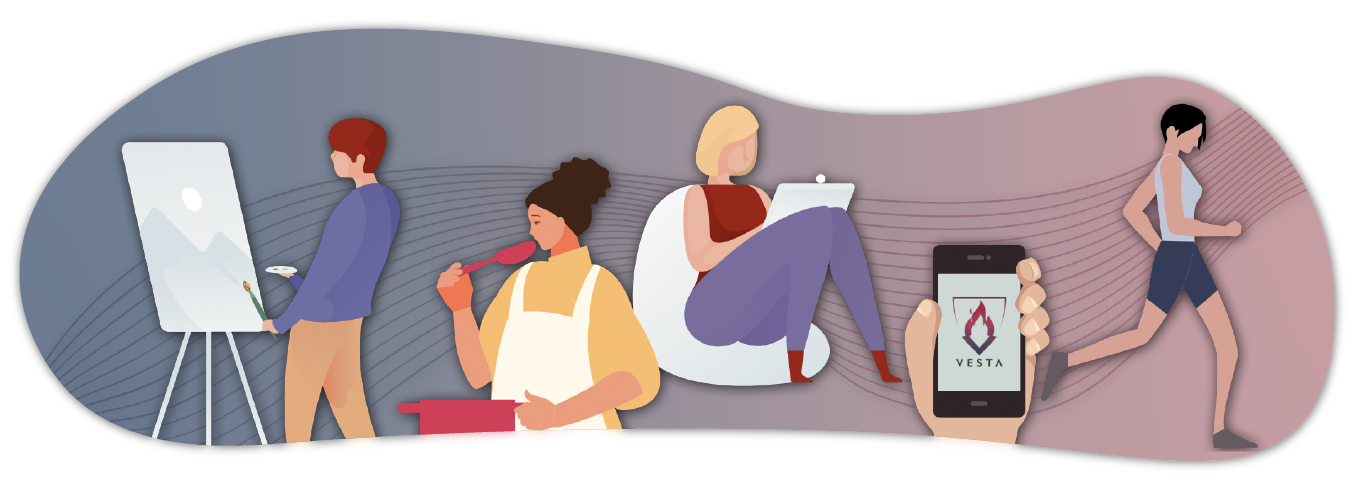The Covid-19 lockdown has created new struggles for those dealing with mental health issues. For survivors of sexual violence, repressed feelings and memories may resurface during this time, due to the little distraction and social contact. Oftentimes, it can become very easy to ruminate on past events when there’s a lack of other subjects to think about and again minimal distraction and social contact. With certain resources such as counselling no longer being in person, and financial aid being scarce for many, it can be challenging to find the help you need. Feelings of anxiety, depression and OCD have been far more prevalent during the pandemic, and those with existing mental health issues report them worsening. If you’ve felt as though your mental health is struggling, you are not alone. During this time the most important thing to do is to look after yourself by implementing self care daily. There are also many wonderful toll-free hotlines if you need someone to talk to. We have listed them at the end of this article.
For now, let’s dive into how you can manage your mental health during these uncertain times.

Set up a routine to stay busy
Having a routine to distract and keep yourself busy is a great step. I don’t expect you to be insanely productive, just set up small tasks such as making dinner, reading twenty pages of that new book, jogging for fifteen minutes, etc…
Try to limit screen time
While social media has it’s pros, there can also be many negative messages and triggers conveyed through certain platforms. If you notice that your social media is creating upsetting feelings, or triggering traumatic memories, limit or delete the app. For example, many individuals share their story of sexual violence on social media. While this is extremely brave and lowers the stigma, it could also be a major trigger bringing up unwanted flashbacks, memories and negative feelings for you.
Stay connected to people who make you happy
It’s important to stay connected to friends and family during this time. Whether it’s a quick call or socially distanced walk, maintaining some form of human interaction is beneficial. It’s a great distraction and break from things that may create stress within your life.
Light exercise
I know this is often an overused tip but when you exercise you do release endorphins that make you happier. You will feel great afterwards and certain feelings of sadness, depression, anxiety or worry may decrease.
Try colouring
Many survivors of sexual violence develop or have symptoms of PTSD which can cause an overactive amygdala. This can in turn create more feelings of panic, fear and anxiety. Colouring actually helps calm the amygdala, which in turn reduces fear, panic and anxiety. It lessens the reaction of certain triggers and ultimately proves to be a very relaxing and therapeutic activity many survivors partake in. Click here to read more about emotional trauma and brain damage and click here to read about how the brain is affected during trauma
Give yourself a break
You are human and should do what you feel you’re capable of. Don’t put too much pressure on yourself to feel productive everyday. It’s okay take a break, relax and recognize when you may be reaching burn out. You absolutely deserve to take time for yourself.
Reward yourself!
Sit back and watch an episode of your favorite show, do the things that make you feel happy. Right now, you are going through a situation that isn’t normal for anyone’s mental health. You are doing your best in a scary time, while also managing your own trauma and that deserves recognition!
If you want to talk to a professional, here are some excellent hotlines that run 24/7 toll free in Canada.
- Assaulted Women’s Helpline
https://www.awhl.org/our-services - Gerstein Crisis Centre Telephone Crisis Support
https://gersteincentre.org/our-crisis-services/telephone-crisis-support/ - Gerstein Mobile Crisis Team
https://gersteincentre.org/our-crisis-services/mobile-crisis-team/ - Crisis Text Line
https://www.crisistextline.ca - Toll Free Helpline For Indigenous Communities
https://www.sac-isc.gc.ca/eng/1576089278958/1576089333975 - French Hotlines For Domestic Violence
https://sosviolenceconjugale.ca/fr - British Columbia and Yukon Toll-Free Service
https://www2.gov.bc.ca/gov/content/justice/criminal-justice/victims-of-crime/victimlinkbc - Alberta Crisis Line (Free in 200 Languages)
https://www.distresscentre.com/need-help/ - Saskatoon Crisis Intervention Services
https://saskatooncrisis.ca - Manitoba Crisis Line
1-888-322-3019 - PEI Helpline
https://www.theislandhelpline.com/contact-us - Halifax Mental Health Crisis Support
https://www.halifax.ca/fire-police/police/programs-services/mental-health-crisis-support-halifax
Written by: Taryn Herlich
